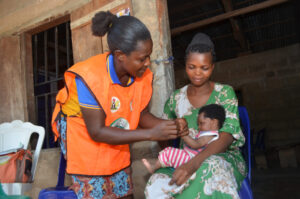Ahead of World Malaria Day, WHO’s Global Malaria Program has published a new operational strategy outlining its priorities and key activities until 2030 to help change the trajectory of malaria trends to achieve global malaria goals. The strategy outlines 4 strategic objectives on which WHO will focus its efforts, including developing norms and standards, introducing new tools and innovations, advancing strategic information for impact and providing technical leadership in the global response to malaria.
In recent years, progress towards the critical targets of the WHO Global Technical Strategy for Malaria 2016–2030 has stalled, particularly in countries with a high burden of the disease. In 2022, there were an estimated 608,000 malaria-related deaths and 249 million new cases of malaria worldwide, with young children in Africa bearing the brunt of the disease.
Millions of people continue to miss out on the services they need to prevent, detect and treat malaria. Global malaria control progress hindered by limited resources, crises, climate change, and biological threats like drug and insecticide resistance.
“A shift in the global response to malaria is urgently needed across the malaria ecosystem to prevent preventable deaths and achieve the goals of the WHO Global Malaria Strategy,” notes Dr Daniel Ngamije, Director of the Global Malaria Programme. “This shift should seek to address the root causes of the disease and focus on accessibility, efficiency, sustainability, equity and integration.”
Strategic goals
WHO’s Global Malaria Program plays an important role in leading the response to control and eliminate the disease worldwide. The program, equipped to influence the malaria ecosystem, spans 150 countries.
The new operational strategy includes 4 strategic objectives.
Develop and disseminate norms and standards. Evidence-based technical recommendations are the cornerstone of the fight against malaria. Normative guidance supports the translation of evidence into practice by uniting countries and partners around a common technical vision and strategic direction. The Global Malaria Program has primary responsibility for leading the research agenda and analyzing evidence that can influence global policy.
Stimulate the development and timely introduction of new tools and innovations. gains and address emerging threats effectively. The Global Malaria Program plays a key role in facilitating the evaluation and implementation of new malaria control tools and works closely with many partners to provide the evidence base for their effective scale-up.

Support the use of strategic information for impact. The Global Malaria Programme’s efforts in monitoring, evaluating, and reporting on malaria trends inform priorities and decisions at all levels. WHO also supports equity monitoring and assessing local barriers to reach those missing out on interventions.
Provide technical leadership for the global malaria response. WHO leads and coordinates the health agenda of the United Nations at national and global levels. The organization convenes stakeholders, advocates priority activities, and enables health access. The Global Malaria Program embodies this core function of WHO in the malaria ecosystem.
Main principles
The new operational strategy is guided by 3 justice-oriented principles:
Country ownership and management with a whole of-government and whole-of-society approach. Countries must fully own and lead malaria efforts, investing adequate domestic resources and implementing a multisectoral response. A country-led response further fosters inclusive governance, accountability, and specific interventions tailored to local conditions.
Resilient health systems to enable national malaria responses to succeed. Delivery of malaria services relies on a robust primary healthcare system that responds to emerging needs and provides quality care to all, including malaria-infected individuals.
Equality in access to quality health services. Efforts to combat malaria must adhere to principles of equity, gender equality, and human rights, ensuring protection and access to quality health services for vulnerable individuals.
World Malaria Day 2024 theme: ‘Accelerating fight against malaria for equitable access’. Yaoundé Declaration prioritizes fairness in African healthcare.